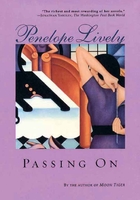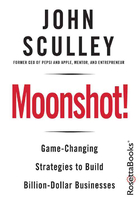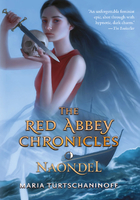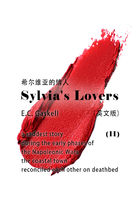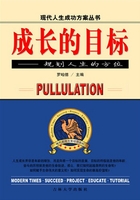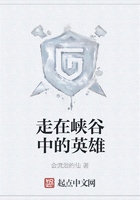"KINGS OF THE WILD FRONTIER"
Adam Ant was the male Siouxsie Sioux. Like the Banshees, the Ants were among the last of the original U.K. punk bands to sign a record deal. Like Siouxsie, Ant cultivated a darkly sexual, proto-goth persona, enjoyed a voluble, devoted following, and refused to skimp on the eyeliner. Unlike Siouxsie, Ant got no respect. In the late 1970s, Britain was able to sustain four weekly music papers, all of which wielded a degree of influence and regarded Adam and the Ants as a lamentable vehicle for a narcissistic phony. They labeled Ant an inauthentic buffoon, an art student dabbling in S&M imagery. The Adam and the Ants responsible for the likes of "Whip in My Valise," "Red Scab," and "Deutscher Girls" deserved most of the derision they received. But the Adam and the Ants who recorded the likes of "Kings of the Wild Frontier," "Dog Eat Dog," and "Antmusic"? They're a principal reason this book exists. When Ant decided to retire the empty shock value of his previous incarnation, to recruit co-conspirator, guitarist, and former Banshee Marco Pirroni and to launch an all-out assault on the mainstream, he did it in the weirdest way possible. None of the musical and visual elements Ant plundered for his reinvention pointed to his subsequent ascendance to teen idol status, but the totality of his image, his theatricality, and the sense of community in his calls-to-arms struck a massive chord. Refusing to settle for life as a stalwart of the independent circuit unshackled Ant's imagination and his ambition. He went from a punch line in bondage pants to the man who would be king.
JB: Forget the white stripe and the line "I feel beneath the white, there is a redskin suffering from centuries of taming." The only tormented minority Adam Ant truly identified with was the Entertainer. Adam and the Ants may have rebooted themselves with a chaotic new look and a vibrant new sound, but the dismissive treatment the old Ants had received at the hands of the media still rankled. "Kings of the Wild Frontier" is a squeal of outrage from a flamboyant, full-color performer freeing himself from a tawdry, foul-smelling, monochromatic post-punk universe. Ant basically had one theme: The artifice of show business was infinitely preferable to the music press–mandated notion of credibility. He rehashed that sentiment in "Prince Charming," "Stand and Deliver," and "Goody Two Shoes." But he never sounded so alive, so energized, and so hell-bent on writing his own legend as he did in "Kings of the Wild Frontier." It was a combination of the liberation he felt about throwing off his old (white) skin and the fact that no one had any expectations of him. It was the lingering resentment over the devious way momentary Svengali Malcolm McLaren made off with three of his Ants to form Bow Wow Wow. (For more on this sordid tale, see our Bow Wow Wow chapter on this page.) It was the way Marco Pirroni's guitar twanged over the drumming duo's thundering Burundi beat. It was the way Ant announced his second act with the declaration "A new royal family! A wild nobility! We are the family!"
LM: There were two singers who shook me up in the way I imagine Elvis Presley did my late-1950s teenage counterparts: Michael Hutchence and Adam Ant. Neither was textbook handsome like, say, John Taylor or Rick Springfield. And while both were usually bare-chested under their tough-looking leather jackets, neither was what you'd call buff. Still, the way they moved onstage and made eye contact with the camera suggested they were sex incarnate. Watching these two, I was never so sure of my heterosexuality. But while Hutchence's deep, conversational singing voice always sounded bedroom-ready, Ant was capable of screams and yelps that suggested you caught him in the middle of the act. That has to be why Sofia Coppola chose "Kings of the Wild Frontier" for the scene in Marie Antoinette in which the queen finally finds coital satisfaction while cheating with the studly Count Fersen. When I met Ant for our interview, he made his entrance wearing eyeliner and eyeliner-drawn sideburns, and a pencil mustache that was more Captain Jack Sparrow than Prince Charming. Still, I couldn't help staring into his blue eyes and thinking, Don't you ever stop being dandy, showing me you're handsome.
ADAM ANT: I was doing graphic design at Hornsey College of Art. I started up a college band called Bazooka Joe. I was playing bass and writing and singing. Bazooka Joe did their debut in London at St. Martin's College of Art in November 1975. That was the night I saw the Sex Pistols—they were the support act. They looked great, dressed in really great clothes. They played very simple songs: Small Faces and Who covers and a few of their own. It wasn't screaming, 15-minute guitar solos in denim-clad outfits; it was, like, 10-second guitar solos. They were really tight. And they had a complete disregard and contempt for the audience that I'd never seen before and quite liked.
That was the catalyst. I thought, Something's happening here, and it's not that difficult. There were very few people who were interested in the Pistols at the start. Bazooka Joe were too set in their ways—they were a rock band and didn't like punk. So I left the band that night and formed the Ants, and that was the start of the career. That was the sort of influence the Pistols had on people. Most of the people in that room went on to form their own bands.
The early Adam and the Ants got a lot of criticism from the media, so much so that we didn't get signed. We had a large following, but they didn't care about that. They just didn't like the idea of signing me. Our first big single, "Dog Eat Dog," was more or less a general assault on the public. I thought our music was better than everyone else's, as every band does, and I put it lyrically. "Only idiots ignore the truth" was a result of being ignored for three years.
In 1979 Malcolm McLaren approached me at a party, and I was quite surprised, really. I think he'd been watching what we were doing and certainly liked the following. After the Pistols, I think he wanted that following. I enjoyed my time with Malcolm. I learned a lot—his theories became very useful to me in my dealings after that time. He stripped it down to a realistic approach to the music industry: simple things like don't be so esoteric; if you want a hit record, put your face on the cover; the structure of a good hit single. He was a great historian of music, which you wouldn't have thought. He came across as an anti-music person, but he actually knew a hell of a lot. And he became a friend, so it was a great loss when he died a few years back.
It wasn't exactly as Zen as that, though. I think he had the idea for Bow Wow Wow before he met me. It seemed like a mutiny at the time. But if it had to happen, it was the right time to happen. And no one can force you to do that. The other three saw a better opportunity to work in their own setup, so they did. I could never have worked for Malcolm. Bow Wow Wow was pretty much Malcolm plus them backing his musical ideas. But they went off and did Bow Wow Wow, and I thought they did some good work. It also gave me an object of competition. I had my eye on them, and we had to blow them out of the water, and I think we did.[1] Annabella [Lwin, former Bow Wow Wow lead singer] is actually a friend of mine.
My songs tend to be a travelogue of my life. Every album has a different look, a different sound, different lyrical content. The hard, simple punk stuff of the first few singles was completely different from the first album, Dirk Wears White Sox, which was quite a weird record. It certainly wasn't a punk record. Then Kings of the Wild Frontier and Prince Charming—every album's been different from the one before.
I liked Lenny Bruce a lot. I'd been listening to him a lot in the late seventies, and Jackie Mason too. And during an art history course, I'd tapped into the Futurists, who were doing some amazing work in sculpture. They all basically got killed in the First World War, so there was only a tiny body of work. I didn't particularly like their politics, but I thought their art was fantastic, marvelous. They were like the punk rockers of the art world, doing weird stuff, ballets and musicals where none of them could play at all. They'd just be blowing trumpets and beating each other up.
What I tapped into then and still do is history. I'm well up on the Regency dandy period. I love certain parts of military history: Napoleonic history, the Charge of the Light Brigade. I took all of these images that I'd grown up with and made a mutant, a hybrid. Punk got really dark by about '79—really druggie, really political, very gray, very nasty. I hated it. So I wanted to do something that was the reverse: colorful, heroic. Pirates and Native Americans were, in their pure essence, quite heroic themes. I'd done my homework on them, then blended them into this idea, and the music matched.
"Kings of the Wild Frontier" is really a mark on all sorts of colors and societies where you feel held back. The lyrics "I feel beneath the white, there is a redskin suffering from centuries of taming"—it's not just the color of your skin; it's the class you're born into. If you're born poor, if your parents don't have any money, it's quite a hard life for you. The Apache war stripe was a declaration of war, as I saw it, on the [record] industry I was up against. They were the enemy. But it was also quite a spiritual thing. I gained a great deal of comfort from studying their ways and philosophies.
STYLE COUNCIL
"[Michael Jackson] phoned me up and asked where I got the jacket from." Ant says, "I told him where to go, and he went and got it. It's a hussar jacket, a theatrical costume from Bermans in London. I sent him down to my friend who worked there. He said, 'I want an Adam Ant jacket,' and they gave him one."
When I came to the USA in 1981, I had a complaint from a Native American society in New York City, and I had to meet with them about it. They were concerned that I was using the stripe. They thought it was just me stereotyping Indians—I don't use the word "Indians"; it's "Native Americans." So I went to see them, I spent the day, and I said, "Look, come and see the show, and if you think I'm using it in a derogatory way, I'll take it off." They came to see it, loved it, and it was all right. I got the go-ahead. I wouldn't have felt comfortable if I thought I was offending people for no just reason, the fact you just don't know your subject. My father was a Romani Gypsy, so I'm very up on the way the Gypsy society is portrayed. They're quite dismissive—they say "Gyppo," which is a slur. It's not nice. So having dealt with that in my family, you respect other people.
I write songs for me. I don't write songs for other people. As far as "Prince Charming" is concerned, I was addressing myself. I wanted to present myself in a good way. My granddad may not have had a lot of money, he may have been born in a caravan, but he looked very smart, very clean, and that stayed with me. That was part of the "Prince Charming" idea. "Ridicule is nothing to be scared of" was a line I felt was quite apt, certainly being in the pop business.
"Goody Two Shoes" was a manifesto about what was happening at that point. "You don't drink, don't smoke"—purely because I didn't drink or smoke, people made assumptions. I thought that was quite a good lyric. And it worked. That certainly broke me in the States. "Two weeks and you're an all-time legend / I think the games have gone much too far," that was almost like saying, "Look, I've had enough of this," and I took all the makeup off.
When video came along, right there, there was a revolution that I was able to embrace. I had a film school training, so I storyboarded them myself, and I could co-direct them. The video became as important as, if not more important than, the music. It didn't hurt that I had had a video go out to homes in the USA before I arrived. When I did my first American tour, our record company commissioned a pirate ship to sail us up the Hudson River to our New York concert. They'd seen what was going on on MTV. People were dressing up like me before I even got here. That wouldn't have happened before video, because I would have had to go out and do the tours first. But those music videos … you can't put that on the radio.
In '81, I did a royal variety show. It was great playing for the queen, marvelous. It's very popular now—the pop world seems to fraternize a lot with the royals. But back then I got a lot of stick for doing it. They thought I'd sold out: "Oh, you've gone very straight." It was a very traditional thing for me to do. But the queen's very hip, as she proved with the [2012] Olympics. And she was then. I remember watching the Rolling Stones and the Beatles meeting the queen, so I thought it can be no bad thing.
MARCO PIRRONI: Adam and the Ants were basically the group I would dream about back in school. This wild, glam-rock, mishmash, looking-weird thing. I didn't have the pirates worked out, but I wanted everyone in the playground talking about us the next day. Like seeing Roxy doing "Virginia Plain" or Bowie doing "Starman" on Top of the Pops—as soon as you saw that, you couldn't watch the rest of the show. You couldn't sleep because you were so excited.
I was completely done with punk by the end of '77. It became an excuse to be stupid. It lost style; it lost subversiveness; it got really conformist. I thought the early punk thing was that old Oscar Wilde thing: "We're all in the gutter, but some of us are looking at the stars." Well, the second generation was basically just "We're all in the gutter." They never moved on. A lot of them still haven't.
I was sitting around waiting for another band to join when I got a call from Adam, which was a surprise. I knew him very vaguely. I'd seen all the incarnations of the Ants, and I thought they were really good. They had some great songs but, me being me, I was always like, "I could do better."
It's really strange, because the only two bands I really liked were the Ants and the Banshees, and I got to join both. But journalists loved the Banshees and hated the Ants. I didn't think the Banshees were that great, to be honest. I thought the Ants were better. I didn't understand why there was this constant slagging. It felt like every review was bad. But then, you know what journalists are like, especially back in the day. They were powerful—talk about make-or-break. But "Kings of the Wild Frontier" did get good reviews. They were like, "You are a genius now."
When I started working with Adam, he'd just been thrown out of his band. It must have been a right kick in the bollocks. He called me up the day after and said, "Look, I've been thrown out of the Ants." I said, "Eh? How could you be thrown out of the Ants? Adam and the Ants!" I don't think the band was particularly happy. They weren't going anywhere. They got Malcolm in as a last-ditch attempt, and Malcolm had other ideas. He had the Bow Wow Wow project. He thought, I can use these three guys, but I can't use Adam—he won't do as he's told. He's going to be trouble. I think Adam was curled up in the fetal position for at least an hour. I'm sure there were some tears. It was like, "Someone stole my girl! Fucking bitch, I'll show her!" Quite a normal reaction.
Malcolm had come up with all these ideas about the tribal drumming, and in my head, it was very much The Good, the Bad and the Ugly. There was a stage show called Ipi Tombi that was all African drummers, and Adam was like, "We should get these guys from Ipi Tombi down." I was terrified: "I don't know anything about African drummers, or how to get them, or what I'm supposed to do with them." Bow Wow Wow also used African drummers, but we went about it in a completely different way. I didn't see them as rivals as much as Adam did, because he obviously had personal issues. It did turn it into a bit of a race. Until we actually heard them. Once our album was number one, Adam wasn't feeling any need for revenge.
MIXTAPE: 5 More Acts of Culture Plunder 1. "Buffalo Gals," Malcolm McLaren 2. "Rapture," Blondie 3. "Aie A Mwana," Bananarama 4. "John Wayne Is Big Leggy," Haysi Fantayzee 5. "Tantalize," Jimmy the Hoover
"Kings of the Wild Frontier" was the first song we wrote together. It was just two guitars. We didn't have any recording equipment. There was no way of recording it. We didn't even have a Dictaphone. We had to remember it every time we did it. It wasn't a fully formed concept at all. I had no clue about songwriting. If it was now, we could just get the records we want to sound like and sample them. But back then it was like we were working on this formless thing that didn't exist: African drumming plus twangy guitar. It was just a thing in our heads. It took fucking ages. We were in my house, this little flat in Earl's Court. We worked a few hours a day—you can't do more than that because then your mind starts going.
"None of us were averse to wearing makeup. Being glam rockers, Bowie and Roxy fanatics, we had no problem with it…. I'm still the world's greatest glam-rock obsessive."
You start forgetting everything. When we recorded it with the band, it was the first time it sounded like an actual song. But we always had the title. It was from Davy Crockett, which I used to love as a kid.
My guitar sound wasn't so much Duane Eddy; it's more James Bond. It also comes from Phil Manzanera's solo in the middle of "Needles in the Camel's Eye" [from Brian Eno's Here Come the Warm Jets]. There's a twangy guitar solo on For Your Pleasure. It was more John Barry and Ennio Morricone than Duane Eddy. That's the way I work: My mind is full of old records. It was also glam rock and Mick Ronson—he was my big guitar hero.
None of us were averse to wearing makeup. Being glam rockers, Bowie and Roxy fanatics, we had no problem with it. Having two drummers was totally Glitter Band–inspired. It also looked great. I'm still the world's greatest glam-rock obsessive. Totally pathetic. All my favorite records were made in 1972. For Your Pleasure, Transformer, Electric Warrior—that's what I still listen to. It's amazing I still find things to steal.
The record company left us alone. There were these A&R men—I don't know how old they were; they seemed ancient to me, [though they were] probably 24 or 26. They just took everything from the NME. When we said, "Look, we want to be this pop band with two drummers and lots of makeup," they were baffled. We said, "Let us try and explain. You know pop stars, right? You know how they go on telly, and they like guitars and girls and money?" "That's what you want to do?!" 'Cause that was the uncool thing. But we said, "Yeah!"
We weren't marketed. We were just left to our own devices. I didn't know that musicians were interfered with by A&R men. I didn't know what an A&R man did. We never went through the traditional routes—we never had art direction, we didn't go to budget meetings. We only did what we wanted. When we did "Prince Charming," it was like, "We're known for records with lots of drums on them—let's do a record with just one drum."
THAT WAS THEN
BUT THIS IS NOW
Ant and Pirroni's hit-making partnership continued through the eighties and into the nineties with Ant solo singles "Goody Two Shoes" and "Wonderful." Pirroni went on to work with Sinéad O'Connor on her acclaimed albums The Lion and the Cobra and I Do Not Want What I Haven't Got. Meanwhile, Ant dabbled in stage and TV acting and moved to Tennessee to raise a daughter.
In the early 2000s, he was plagued by a well-publicized series of mental problems that saw him institutionalized on several occasions, including following a 2002 incident in which he threw a car alternator through a pub window. In 2011, he started playing live again with his new band, which he took to America in 2012 for his first tour of the States in 17 years to support his album, Adam Ant is the Blueblack Hussar in Marrying the Gunner's Daughter.
ANT: I went to see This Is It after Michael Jackson passed away. I sat there and I thought, A lot of the performers are going. Poly Styrene had passed away, and a number of other musicians, and there is only a certain time in your life when you can physically keep doing this. I'm pretty fit, so I thought, Now's a great time to get back on board.
In 2013 [I released] a new album. It may have been 16 years between albums, but it's hopefully worth the wait. If I wanted to just do it for the money—and money's not a bad thing when you've got a family, you've got expenses—then I would've just done those eighties-hits tours where you get paid a lot to go out and sing your hits amongst other people from that generation. Once you do that, you can't really go back to being taken seriously as a competitive, contemporary artist. Fortunately, I've managed to steer clear of that.
"Not taking any time off for 20 years, it's hardly surprising I'd succumbed to [mental breakdowns]."
It's very tempting because I was offered the O2 Arena. Take Spandau Ballet. I was offered that kind of situation where you hire a massive venue, like the O2, with 10,000 to 15,000 seats; they spend a year promoting it, and that's it. You've made your comeback. Where do you go from there?
Not taking any time off for 20 years, it's hardly surprising I'd succumbed to [mental breakdowns]. The main thing with mental health is to realize the alarm bells and the triggers that cause it. In my case, it's primarily due to overwork. Anybody who's been through any kind of mental illness will tell you that you have to be very careful and live each day as it goes. I've learned to just say no. That was not the case before, where it was all, "Just do another few gigs," and "We've got to have the record out next Thursday." It was a [hamster] wheel. You've got to know how to get off. When I'm on tour, I'm really celebrating for myself. This is me having fun; this is me surviving. This is growing older with grace. There's still lead in the pencil.
PIRRONI: We were arrogant back then. We thought everyone else was shit. Looking back, they weren't all shit. That attitude was a reaction against bands like New Order,[2] which we hated. They were coming from exactly the same place we were. They had exactly the same records. But at the time, I hated all that gray, grim Northern bollocks. But now I can see it's just all Low and Heroes.
As far as working with Adam again, it would be nice one day, but I don't see it happening. We'd have to speak to each other to find that out, wouldn't we?
Notes
[1] LEIGH GORMAN, Bow Wow Wow, formerly of Adam and the Ants: I remember Adam came on Top of the Pops with "Dog Eat Dog" with his white line on his face. I thought, That's it. He's done it. We'd just put out "C30, C60, C90, Go." The guy at the record label called up Malcolm and said, "These sales figures don't match your chart position. You guys should be at number 14 or 12 right now, and you should be going on Top of the Pops, but they've held you back." So we went over to EMI and trashed the place. I think we threw Cliff Richard [gold] records out the window. Malcolm was trying to create a stunt like the Pistols. It completely backfired: They didn't promote the single. And Adam comes along with his image, his better-sounding production, and his more innocuous lyrical subject, goes on Top of the Pops, and everyone goes nuts.
[2] PETER HOOK, New Order: Musically, I love Adam and the Ants. They're one of my favorite groups. But it was very difficult for me as a Northern male to relate to the dandy look. We would've been laughed out of Manchester had we even considered it. Bernard [Sumner] and I used to go out in London with all them lot—Siouxsie and the Banshees to the Embassy Club, Rusty Egan when he used to run the Blitz. We looked like working-class yobs, and everyone else was dressed up as a pirate. Leigh Bowery had a candle melted all over his head, and there's me and Barney in our motorbike jackets looking like greasers.

